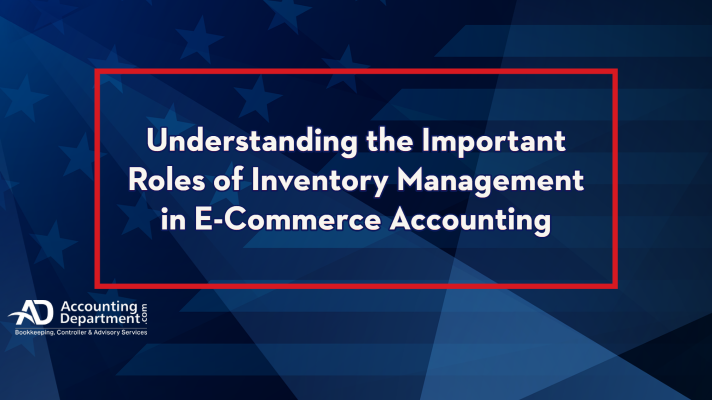This article recaps the important role of inventory management in e-commerce and the vital ways it helps businesses control costs and improve customer relationships.
What is the Primary Role of Inventory Management in E-Commerce Accounting?
Since inventory is the most valuable asset in every e-commerce business, the primary role of inventory management is identifying and tracking stock efficiently from point of purchase to point of delivery to the customer. The end result of the identification and tracking is improving cash flow and profitability for an organization.
When products are received and recorded as inventory, they are available for purchase. Once sold, they are converted to cash assets, resulting in profit generated for the businesses, which is the ultimate goal.
How Does Poor Inventory Management Impact E-Commerce Profitability?
During the point-of-purchase-to-delivery-customer cycle, there are myriad processes where inefficient processes and poor inventory control can negatively impact cash. For example, failure to maintain adequate inventory mainly results in having to pay higher prices for production supplies when demand for a product suddenly surges. Or customers may not be willing to wait and cancel orders if a company runs out of a product due to high demand and cannot get replenishment quickly.
Conversely, having too much stock on hand of a product that is outdated or unpopular costs a company money just sitting idle on a shelf for an extended period of time. This could result in having to sell the product at deep discounts to clear the space or paying a third-party shipper for storage needlessly for a “dead product” when tracking inventory trends would have forecast the buying decline sooner.
These are only two examples of how poor inventory control impacts cash flow. The type of online business you operate may dictate which type of inventory management system works best for you. Here are a few things to consider.
Different Techniques & Inventory Management Systems
Because inventory control is about more than simply buying and selling products, you need a management system, like NetSuite, in place that can identify and track the inventory within your organization that impacts your specific cash flow.
Your specific organization may have all, or just some, of the following:
- A high or low product turnover rate
- Variable product purchase rate (based on lead times, volume, payment terms, vendor, and other factors)
- Drop shipping contracts
- In-house shipping
- On-demand orders available
- Subject to seasonal surges/declines
- Raw materials availability required
- Backup stock required
- Custom orders
- High value, limited stock asset
- Low value, high quantity stock asset
Based on your specific cash flow factors, consider the following types of inventory management solutions.
ABC Analysis: This tracking method works well for businesses that sell both high-value and low-value assets, but carry a limited number of high-value assets in stock.
Economic Order Quantity: This tracking method helps companies reduce storage costs and fine-tune replenishment processes.
First-in/First-Out: This tracking method is typically used with perishables, such as food and other goods with an expiration date. Insuring your shrink is minimal due to in-house waste.
Just-In-Time: This tracking method helps businesses maintain the absolute minimum inventory and still meet customer demands and expectations. Saving spending, increasing available cash for operational needs.
Last-in/Last-Out: This tracking method assumes prices always increase, so the last price is always the highest paid. Sell it first, then get the liability off the books!
Minimum Order Quantity: This tracking method works great for a company that has a basic set of standard products they reorder regularly and always wants to get the deepest discounts.
Safety Stock: This tracking method allows e-Commerce businesses to effectively maintain a well-stocked warehouse or products they may have trouble replenishing quickly.
The Benefits of Inventory Management
With NetSuite’s inventory management options, e-commerce businesses can benefit from:
- Tighter control
- Better cash flow
- Improved efficiency
- Saving money
- Enhanced profitability
To learn more about NetSuite and how can help your business, visit the ADC blog. To take it a step further, learn more about AccountingDepartment.com’s client accounting services for your business by reaching out to one of our team members today!





